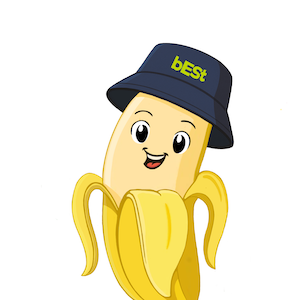
Written by the Faculty of Environment
By the time Pedro finished his time at Waterloo, he had more than a Geomatics degree to add to his résumé.
Beyond the skills he learned in the classroom, Pedro also gained real-world experience in the field, working across all three levels of government, in sectors spanning telecommunications, transportation, and agriculture.
“I chose Waterloo for the co-op program,” says Pedro, who’s helped York Region map out its fibre-optic network while finishing a Master of Science degree in Geography at Waterloo. “I was able to figure out the types of work I might like to do before I even graduated.”
But while “co-op didn’t fail to impress,” he says, the biggest surprise was how much Geomatics grads are in demand.
It’s easy to see why, when you consider the scope of geomatics, a discipline concerned with gathering spatial data related to both the natural and built environments — and then combining this data with concepts related to computer science — to see what’s happening in our world. Even better, it means you get to play with drones and other remote-sensing technologies.
In his first year, Pedro was expecting to enjoy the computer science courses in his program, but wasn’t sure how interested he was in the environmental side of things. “Now that’s what excites me most, how geomatics can help solve deeper issues related to land management and climate change,” says Pedro.
As part of his master’s program, Pedro researched how rising Arctic temperatures affect the erosion of land and river migration patterns. “The work we’re doing has real-world implications that might help change conservation practices,” he says.
As interest in geomatics grows, so does his passion. “When I was an undergrad, geomatics wasn’t well known,” says Pedro. To help raise awareness, he joined the student-led National Geomatics Competition, first as a competitor and then as the event’s chairman. “I want to see other people embrace geomatics and love it as much as I do,” he says.
Of course, there are other benefits to volunteering, including meeting people who currently work in the field. “I’m all about networking,” he says. “Talking to people and getting out there put me in touch with all the big employers and professors working in geomatics.”
“Studying geomatics was a risk, because I didn’t know I’d like it,” he says. But by opening his mind, joining clubs, volunteering, and staying committed, he’s set himself up for success while doing something he loves.
Take a risk, get involved, and stay committed. That’s what university is all about.
Related articles

Finding a fit in Geomatics
In high school Andrea was computer savvy, artistic, and analytical. She wanted to find a university program that would allow her to be all of those at the same time. With a little help from her mom, Andrea found Geomatics in the Faculty of Environment.

Getting involved in the Faculty of Environment
As a student in the Faculty of Environment, you get the unique opportunity to be part of a community that’s having an impact on a local and global scale. Through these opportunities, you'll get a chance to meet new people, apply your classroom knowledge, and learn useful skills. Here are six ways you can get involved in the Faculty of Environment community.

Finding your place — and making the world a better one
Whether she’s leading the Radicle, working on a co-op term, donning in residence, or serving in her role as the first-ever Waterloo Undergraduate Student Association (WUSA) Sustainability Commissioner, Michelle sees university as an opportunity to grow in all ways — not just academically.

